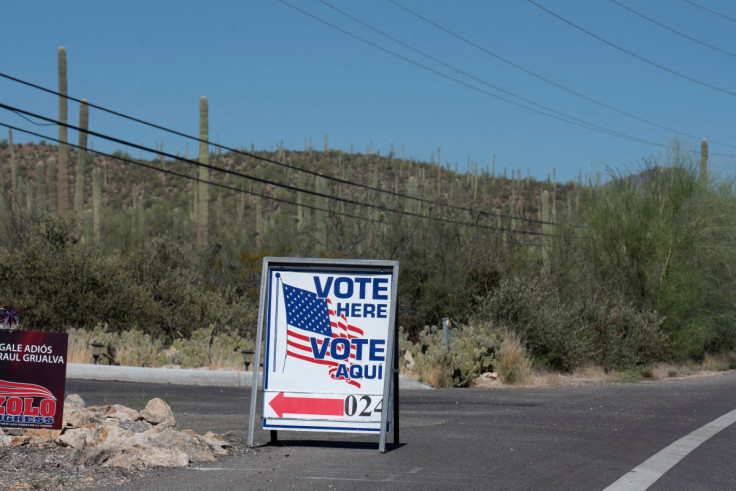
Arizonians headed to the polls this week to cast their ballots in a series of primaries in down-ballot races. The results of some of these races turned into concerns among mainstream voting groups for one particular characteristic— it may have brought previous election-deniers one step closer to gaining power.
Among those espousing this view are U.S. Senate candidate Kari Lake, former state Sen. Sonny Borrelli and former Arizona secretary of state candidate Mark Finchem, CBS News reports. They were all, at some point or another, highly vocal about denying the election results in 2020, which saw President Joe Biden ascend to the White House.
Now, having won their respective primaries, their alignment with this debunked view is raising eyebrows among voting groups.
"These results are consistent with what's happening around the country, in that there are significant efforts from people who don't believe in elections to take over the process," said Alex Gulotta, the Arizona state director for All Voting is Local, a nonprofit voting rights group.
"Folks should be paying attention to these small races, because this is where the democratic process takes place," Gulotta continued.
Similarly, other politicians are denouncing election denying all-together, without necessarily singling out a public figure who has engaged in the act.
Secretary of State Adrian Fontes' office refused to comment on specific races, but a representative from his office told the following to the outlet: "Election denialism undermines democracy and there is no evidence, nor has there been evidence, of election wide-spread fraud."
As the Arizona primaries came about, many worried election conspiracies would question its integrity, according to CBS News. However, this was not the case, as election deniers themselves won some of the contests they were running for.
One of the most high-profile cases was that of former television anchor Kari Lake, who ran for Arizona governor and lost in 2022, yet never officially conceded and currently still adheres to the false claim that the election was stolen from her. On Tuesday, she defeated Pinal County Sheriff Mark Lamb and Elizabeth Reyes, a neuroscientist. She will now face Democrat Ruben Gallego in one of the most watched Senate races that could determine the control of the chamber in November.
Another consequential result came when voters unseated Stephen Richer, the Maricopa County Recorder who had become an outspoken critic of election deniers. He lost his bid to Rep. Justin Heap, who is aligned with Arizona's right-wing Freedom Caucus and has refused to say if he thinks Maricopa's elections are free and fair.
Maricopa County is a sharply divided and hotly contested swing county that could play a pivotal role in the 2024 presidential contest. Encompassing Phoenix and its heavily populated suburbs, it is home to more than 60% of registered voters in the state. If deniers win their general elections, they will have significant sway over the ways future elections are administered, according to CBS News.
But worries of election-denying coming into the mainstream is not only happening in Maricopa, in fact, other races across the state are experiencing similar results.
For instance, Mark Finchem, a Trump-endorsed candidate for secretary of state, won his primary for a state legislative seat. He played a pivotal role in the movement to undermine the 2020 and 2022 elections, and was allegedly one of five co-conspirators in the fake electors case brought by the Arizona attorney general in April. If he wins, he will replace Ken Bennett, who blocked several restrictive election measures since 2020 and will help oversee the rules for elections.
© 2025 Latin Times. All rights reserved. Do not reproduce without permission.





